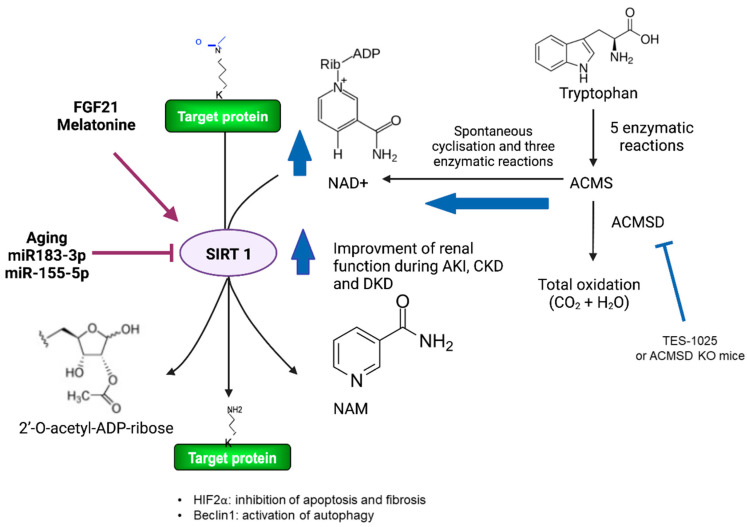Figure 2.
Modulation of NAD+ metabolism improves renal function during AKI and chronic kidney disease. SIRT1 activity is dependent on NAD+ levels, which are maintained, in part, through NAD+ biosynthetic pathways. High levels of ACMSD in the kidney decrease NAD+ levels. Thus, the use of ACMSD inhibitors such as TES-1025 has the potential to be efficient in protecting renal function, as observed in ACMSD-KO mice. Furthermore, SIRT1 activity is positively modulated in the kidney by FGF21 and melatonin. In contrast, aging and miRNAs, such as miR183–3p and miR155–5p, decrease SIRT1 activity. Finally, HIF2α and Beclin1 are among the newly described SIRT1 target proteins in the kidney. SIRT1, sirtuin 1; NAD+, nicotinamide adenine dinucleotide; NAM, Nicotinamide; ACMS, α-amino-β-carboxymuconate-ε-semialdehyde; ACMSD, α-amino-β-carboxymuconate-ε-semialdehyde decarboxylase; KO, knockout; AKI, acute kidney injury; CKD, chronic kidney disease; DKD, diabetic kidney disease.

